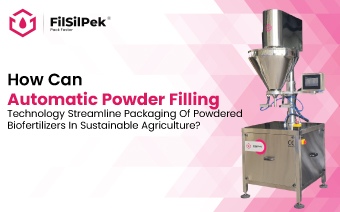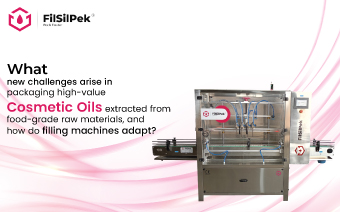Everything You Need To Know About Liquid Syrup Manufacturing Plant
In the world of pharmaceuticals, liquid medications have played a significant role in providing effective treatments for various ailments. From cough syrups to pain relievers, liquid syrups offer convenient dosing options for patients of all ages. Behind the scenes, a well-equipped and efficient liquid syrup manufacturing plant is responsible for producing these life-saving concoctions. In this article, we will delve into the intricate workings of a liquid syrup manufacturing plant, exploring its processes, benefits, and the pivotal role it plays in the pharmaceutical industry.
What is a Liquid Syrup Manufacturing Plant?
A liquid syrup manufacturing plant is a facility designed to produce high-quality liquid pharmaceutical formulations in the form of syrups. These plants are equipped with state-of-the-art machinery and adhere to strict quality standards and regulations to ensure the safety, efficacy, and consistency of the final product.
How Does a Liquid Syrup Manufacturing Plant Work?
Formulation Development:
The first step in manufacturing liquid syrups involves formulating the recipe. Pharmaceutical scientists and experts carefully select active ingredients, additives, flavors, sweeteners, and preservatives to create a safe and effective product. These formulations are developed based on extensive research and testing.
Raw Material Acquisition:
Once the formulation is finalized, the liquid syrup manufacturing plant procures the necessary raw materials from approved suppliers. The quality of raw materials is crucial to ensure the end product’s integrity, potency, and safety.
Mixing and Blending:
The raw materials are then measured and combined in precise quantities using specialized mixing equipment. This process ensures that all ingredients are uniformly distributed throughout the syrup, guaranteeing consistent dosage levels and efficacy.
Heating and Sterilization:
To ensure the elimination of harmful bacteria and other microorganisms, the syrup is heated and sterilized using sophisticated techniques. This step is vital to maintain product stability and extend its shelf life.
Filling and Packaging:
After the syrup is prepared, it is transferred to filling machines, which accurately measure and fill it into bottles or containers. The bottles are then capped, labeled, and packaged for distribution. Advanced automation systems streamline this process, ensuring efficiency and minimizing human errors.
Benefits of Liquid Syrup Manufacturing Plant
Accurate Dosage:
Liquid syrups offer precise dosing options, allowing healthcare professionals to tailor medication administration according to patient needs. This is particularly beneficial for children, elderly individuals, and patients with swallowing difficulties.
Enhanced Absorption:
Compared to solid dosage forms, liquid syrups are often absorbed more quickly and efficiently by the body, leading to faster onset of action and improved patient outcomes.
Versatility and Flexibility:
Liquid syrups can be formulated in a wide range of flavors and strengths, providing options for patients with varying preferences and requirements. This versatility allows pharmaceutical companies to cater to diverse market demands.
Convenience and Compliance:
Liquid syrups are easy to administer and are suitable for patients who have difficulty swallowing tablets or capsules. This improves patient compliance and ensures the continuity of treatment.
Applications of Liquid Syrup Manufacturing Plant
Liquid syrup manufacturing plants have a wide range of applications in the pharmaceutical and healthcare industries. Let’s explore some of the key applications of these plants:
Pharmaceuticals:
Liquid syrup manufacturing plants are primarily used for producing liquid medications. They play a crucial role in manufacturing a variety of pharmaceutical formulations, including cough syrups, antacids, analgesics, antibiotics, anti-allergic syrups, pediatric medicines, and more. These plants enable the production of accurate and consistent dosages, making it easier for patients to consume medication.
Nutraceuticals:
Liquid syrups are also commonly used in the production of nutraceuticals, which are dietary supplements that provide health benefits beyond basic nutrition. Liquid nutraceutical syrups often contain vitamins, minerals, herbal extracts, and other bioactive compounds. Liquid syrup manufacturing plants facilitate the production of high-quality and easily consumable nutraceutical formulations.
Herbal and Ayurvedic Medicines:
Liquid syrup manufacturing plants are instrumental in the production of herbal and Ayurvedic medicines. These plants enable the extraction and formulation of plant-based ingredients and natural extracts, which are then transformed into liquid syrups. Herbal and Ayurvedic syrups are widely used for their therapeutic properties, such as promoting digestion, boosting immunity, and alleviating various ailments.
Veterinary Medicines:
Liquid syrup manufacturing plants are also utilized for the production of liquid medications for veterinary use. These plants enable the formulation of animal-friendly and easy-to-administer liquid syrups, catering to the healthcare needs of pets, livestock, and other animals. Veterinary liquid syrups may include medications for treating infections, parasites, and other common animal health conditions.
Flavorings and Syrup Bases:
Liquid syrup manufacturing plants are involved in the production of flavorings and syrup bases that are used in various industries. These flavorings and syrup bases find applications in the food and beverage industry, where they are used to enhance the taste and aroma of products such as syrups, beverages, confectionery, and desserts.
Contract Manufacturing:
Liquid syrup manufacturing plants often offer contract manufacturing services, wherein they produce liquid syrups for other pharmaceutical companies. This allows companies to outsource their production needs and leverage the expertise and infrastructure of established syrup manufacturing plants.
Customized Medications:
Liquid syrup manufacturing plants have the capability to produce customized medications based on specific requirements. For example, they can create personalized liquid medications with tailored dosages, flavors, or ingredient combinations to cater to individual patient needs. This customization enables healthcare providers to offer personalized treatment options to their patients.
Conclusion
In the realm of pharmaceutical manufacturing, liquid syrup manufacturing plants are indispensable in producing high-quality, easy-to-administer medications. From formulation development to packaging, these plants employ cutting-edge technology and stringent quality control measures to ensure the production of safe and effective liquid syrups. By providing accurate dosing options, enhanced absorption, and improved convenience for patients, liquid syrup manufacturing plants contribute significantly to the advancement of healthcare worldwide. As the demand for liquid medications continues to rise, these plants will play a pivotal role in ensuring the availability of life-saving treatments for generations to come.
How can automatic powder filling technology streamline packaging of powdered biofertilizers in sustainable agriculture?
The demand for biofertilizers has increased sharply as agriculture moves toward….
What new challenges arise in packaging high-value cosmetic oils extracted from food-grade raw materials, and how do filling machines adapt?
High-value cosmetic oils like argan, almond, jojoba, avocado….
How are D2C edible oil startups using smart filling systems to offer personalized packaging for home delivery?
Direct-to-consumer (D2C) edible oil brands are changing the way households buy and use cooking oils. By cutting….



